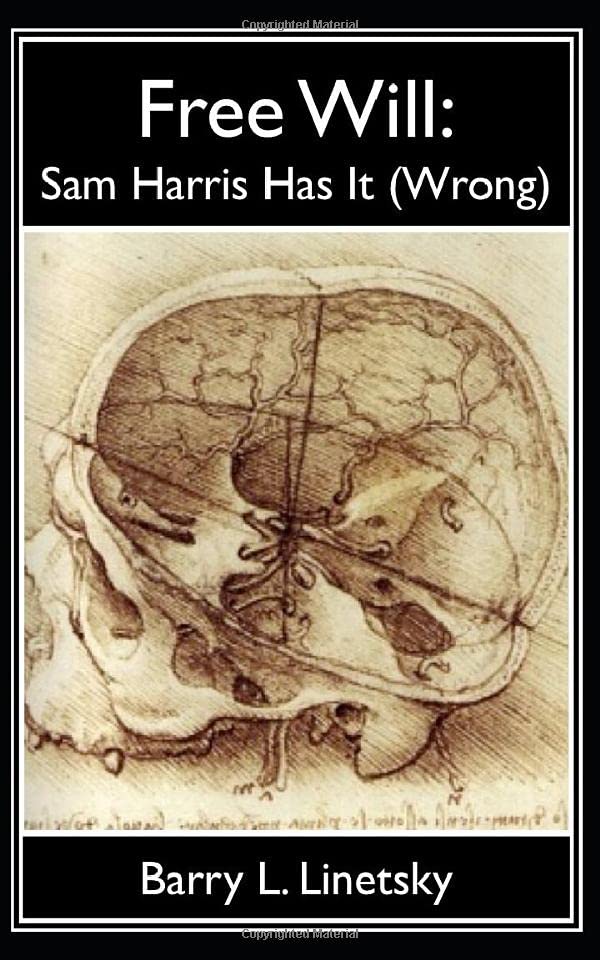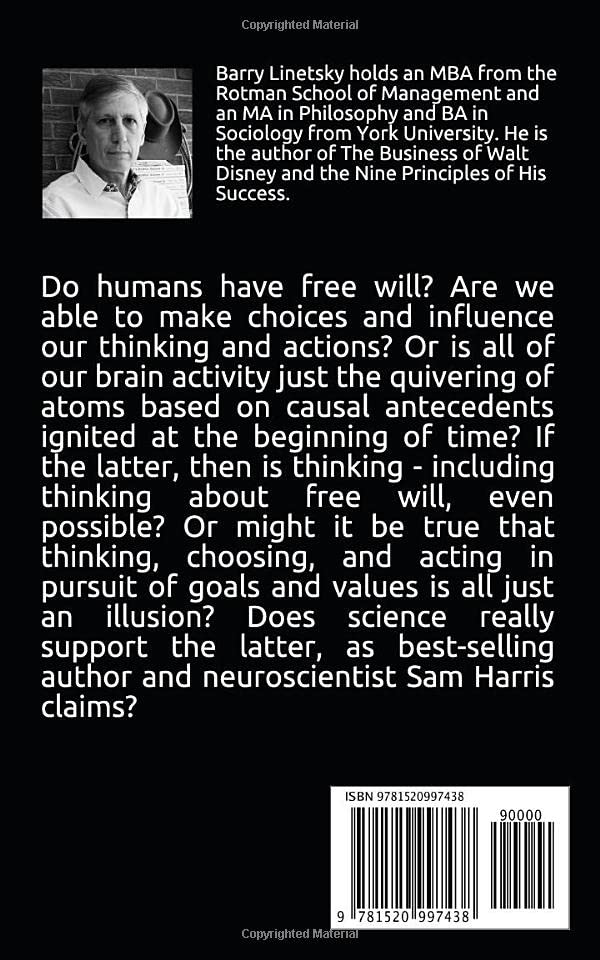Customer Services
Copyright © 2025 Desertcart Holdings Limited



Free Will: Sam Harris Has It (Wrong)
T**D
A Cogent Response
The author aptly points out where Sam Harris accepts one form of evidence to support his conclusions and then turns around and dismisses the same form of evidence when it contradicts his desired conclusions.This form of academic/scientific hypocrisy reveals the underlying sand being used as the foundation for Mr. Harris' self-excusing conclusions.If our society embraced this tripe as scientific truth, civilization would dissolve because no one could be held accountable for their actions.The Bible teaches a truth that relates to this point, and it is one that Mr. Harris accepts elsewhere. The Bible says, "by their fruits ye shall know them." This is known in natural law as the law of the harvest. It says that you cannot harvest watermelons when you planted only corn.The utterly devastating effects for humanity that would grow from this bad seed which Harris tries to plant reveal the seed for the moral evil that it is. And that is an argument which Mr. Harris accepts in his treatise on science as a source of morality. There, he says that if an action or approach clearly produces more misery, then it is morally wrong. His premise about free will, if applied to society would produce untold misery. Ergo, it is morally and scientifically wrong.
K**R
Free Will: Linetsky Read Sam Harris (Wrong)
Unfortunately, Linetsky presents a misguided critique of Harris by overlooking Harris's use of inductive scientific logic based on neuroscientific evidence, by conflating free will and conscious thought and by relying on oversimplified theoretical retorts to an original argument that deserves a more detailed and in-depth reading from him.
V**I
Don't recommend ...
The author of this book unfortunately seems to have misunderstood large portions of Sam Harris's original argument and as a result, wound up attacking a handful of strawmen. He kept asserting that Dr. Harris says that thinking and choices are both illusions, then refuting those notions.The real argument says that we do think and choose. Those thoughts and choices are simply determined by prior cause. I honestly can't think of anything in this book that actually undermined Sam Harris's book (for those who took the time to fully understand it). As a result, I'm that much more convinced of determinism.
P**2
In a debate...well done!
Linetsky does a good job of basically and simply refuting Harris's main thesis, although I would agree with some of Harris's main points that the subconscious and other brain "tapes" do affect conscious actions. In the Harris- Linetsky "debate "it would be finally resolved that Linetsky won, but Harris had some points to ponder.
J**R
I'm so impressed
I'm so impressed that Sam Harris pissed this guy off so much he had to a rebuttal book.
D**E
Excellent and understandable validation of free will
Excellent short essay that professors should consider assigning to their students.When reading an attack on free will, it is often easy to just shrug and wonder why anyone would fall for such an obviously wrong point of view. But as Linetsky points out, university philosophy students can easily fall for complex arguments that they don't know how to refute.In essence, students think "If I don't know WHY something is wrong, then just maybe it is right, even if it appears to be obviously absurd."Linetsky does the hard work of figuring out precisely why someone like Harris is wrong. While Harris's assertion that free will is an illusion is obviously wrong on the face of it, Linetsky points to the methodological errors. By understanding the errors of method, students can look at a host of other propositions and identify their methodological errors as well.It is easy to become overwhelmed by scientific terminology and complex arguments. Students get bad grades if they "fall back" on defences like - "but this is just stupid". Linetsky empowers students with methodological rigour and shows that axioms and inductive reasoning underpin all attempts at deductive logic.Very nice short, free read that students should be exposed to!
C**N
Free Will: Sam Harris Has It (Wrong)
I love the various points of argument. I agreed with them all. I was very happy there was someone else out there to challenge the original writing.
J**.
Interesting
In reading this, I found it to be interesting and informative. I have always been curious why those Ayn Randians justify their viewpoints since I do not agree. They use free will as their vehicle. I enjoyed reading about Jones' neoatomism because it relates more to my theories and life experience.
Trustpilot
2 days ago
3 weeks ago